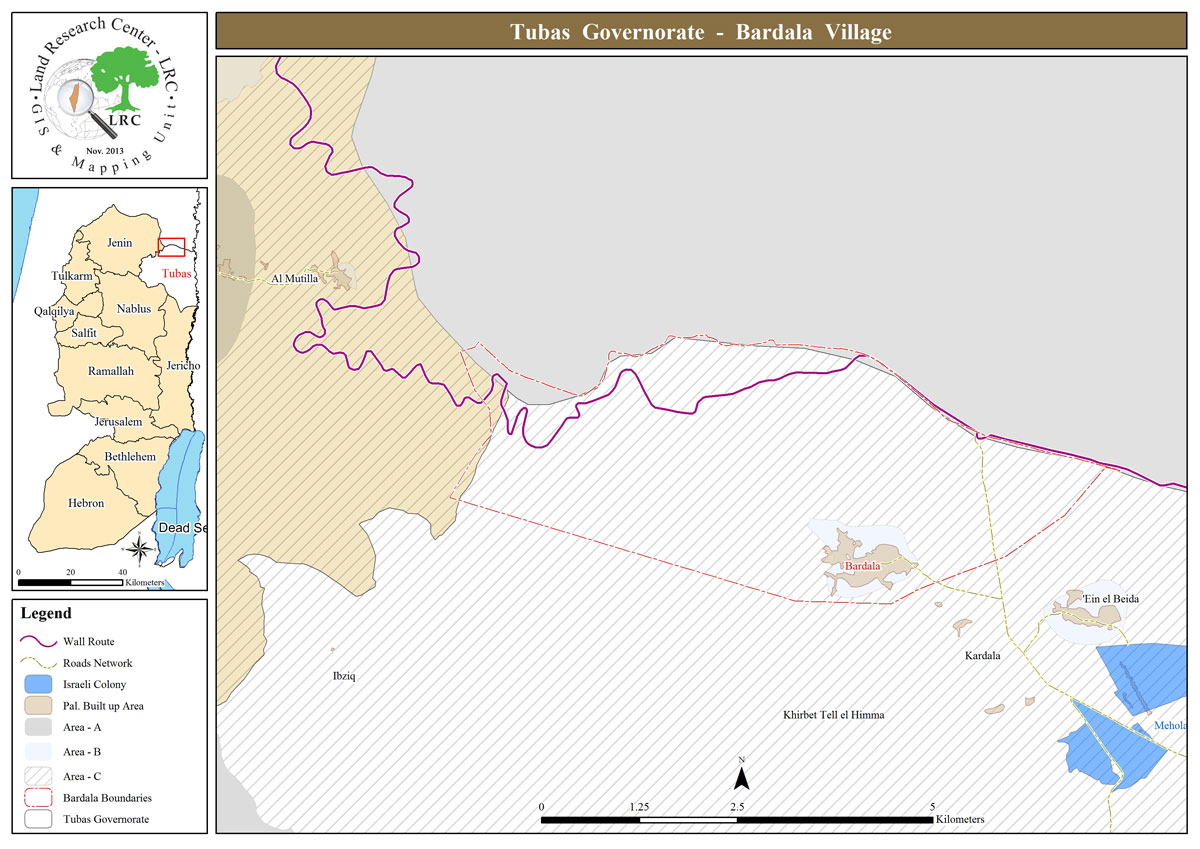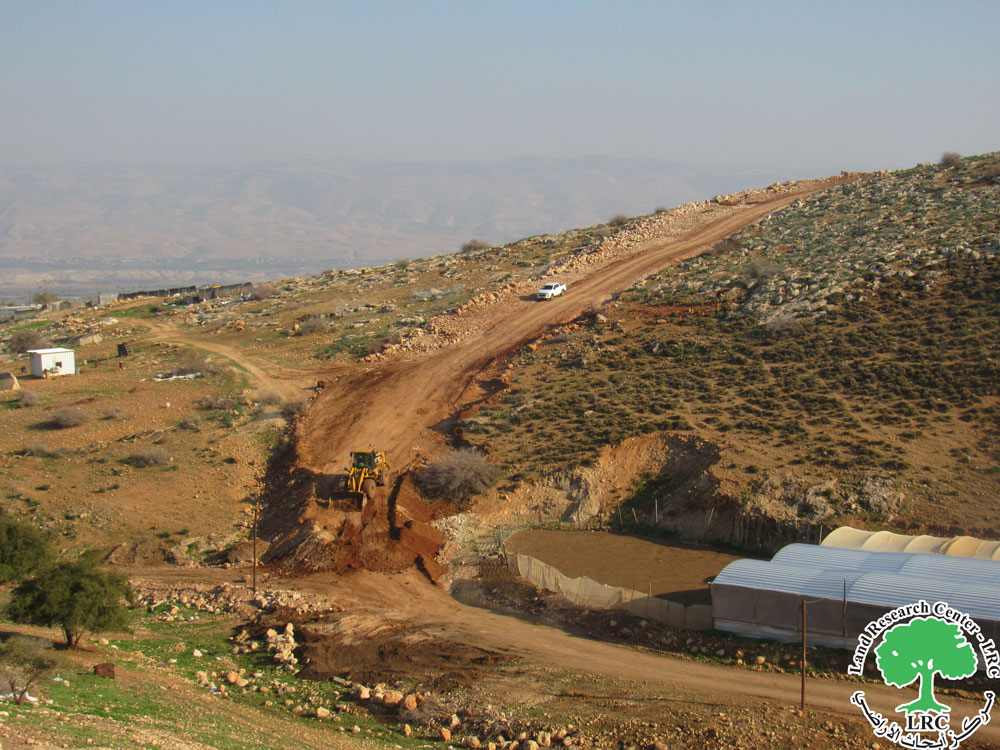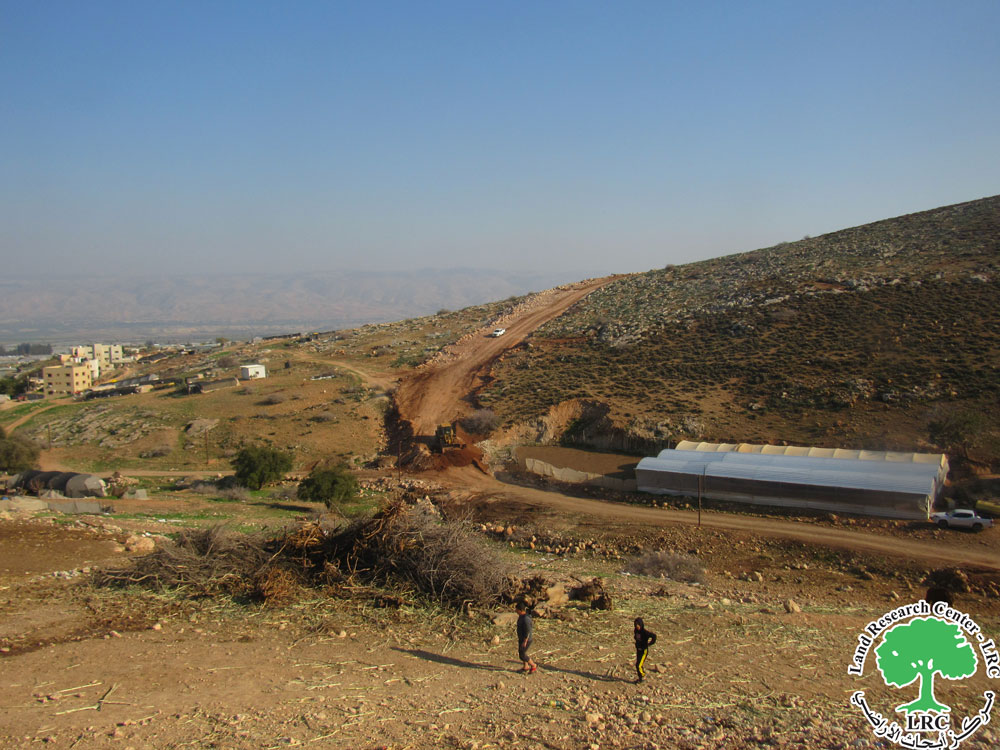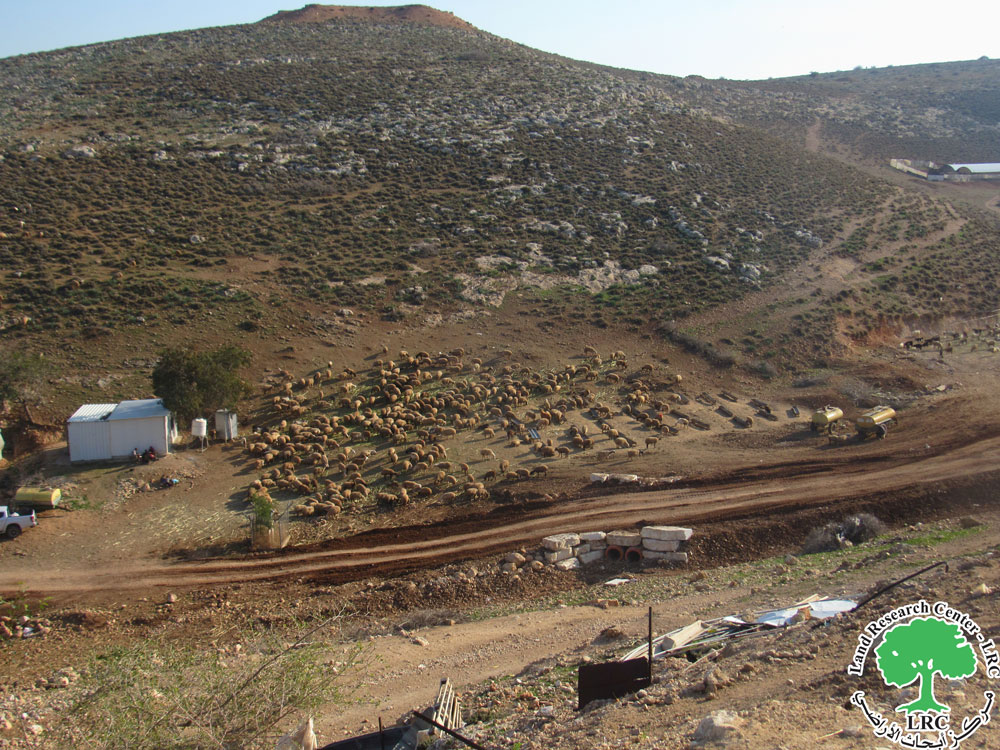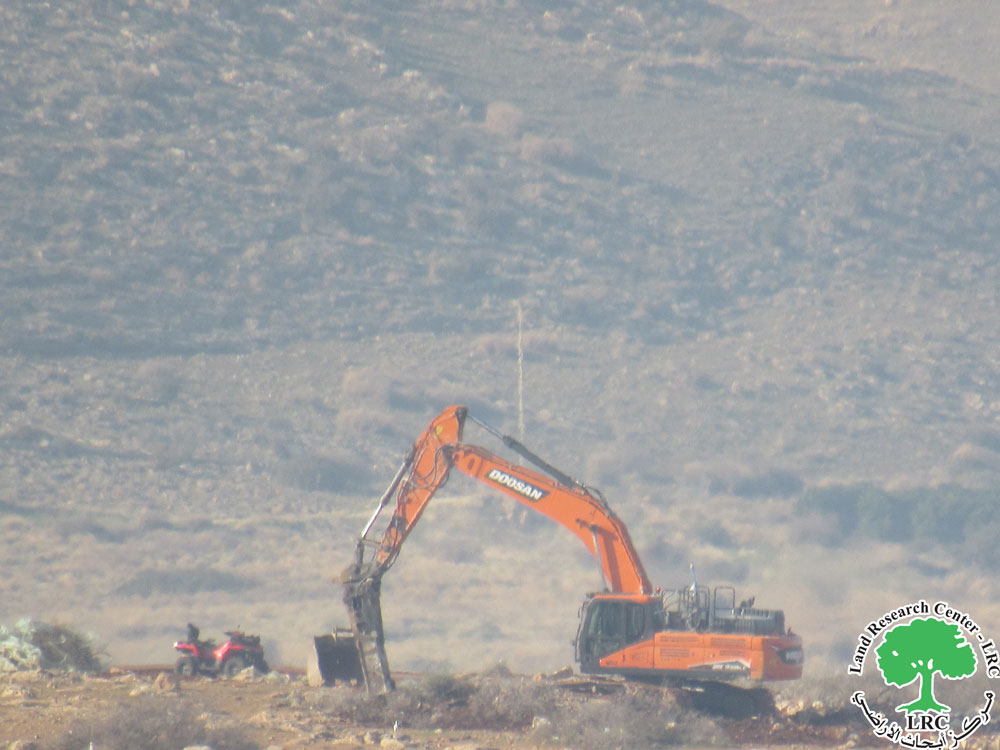Israeli Occupation Begins Construction of a New Settlement Road Concurrently with Establishing a New Grazing Outpost on Lands of Bardala Village / Tubas Governorate
- Violation: Construction of a settlement road and establishment of a new outpost.
- Location: Bardala Village, Northern Jordan Valley.
- Date of Violation: Early January 2025.
- Perpetrating Party: A group of settlers.
- Affected Party: The residents and farmers of Bardala Village.
Desciption:
The Israeli occupation continues, around the clock, using civilian machinery contracted by one of the contractors, to construct a new settlement road 3 kilometers long and 15 meters wide. The road starts from the Qaon plain area adjacent to the apartheid wall west of the villages of Kardala and Bardala, heading towards the southern edges of the two villages, then turning towards the 90 bypass road and continuing towards the Bisan military checkpoint.
It is worth noting that the excavation has very serious implications, as it is in some areas directly adjacent to tents, agricultural barns, and water sources in the two villages.
According to direct field research at the site of the violation, approximately 80% of the land being excavated is classified as grazing land, which is considered "state land" according to the occupation's records. The remaining 20% of the land is privately owned under Jordanian land title deeds and was recently used for field crops, belonging to farmers from the village, specifically the Al-Sawaftah family.
According to the impacted farmer and member of the village council in Bardala, farmer Ashraf Ibrahim Ali Sawaftah, he said:
"Since the beginning of the construction of this section of the new road, no military notification of confiscation has been given, as most of the land is classified as state land. We were surprised to see these machines working in our pastures and near our homes, without any notification. We tried to communicate with the workers there, and they told us that this is a new settlement road. We contacted the governorate and opened a legal file to follow up on the matter."
He added:
"This road has serious consequences for us, as there are no fewer than 9 barns located directly adjacent to this road, in addition to at least 1,400 dunams of vegetable crops around this road. Not to mention the pastures that will be isolated by the road from the farmers' homes and livestock breeders, amounting to about 2,000 dunams. This is a major threat to the entire agricultural sector."
In addition to the above, such a road will serve as a justification for the occupation and the so-called Israeli Civil Administration to implement an organizational plan that will prevent construction on both sides of the road for a distance of 20 meters. This means that a large number of barns and tents are now at risk of complete demolition and displacement. It is worth noting that at least 70 residential and agricultural structures in the village are threatened with demolition and a halt to construction.
Establishment of a New Grazing Outpost:
It is noted that the Israeli occupation previously established a new grazing outpost in early December. This outpost consists of two tents made of arches and tarpaulins and a barn for raising cattle, covering an area of 2 dunams in the Qaon plain area, within natural basin No. 113 and plot No. 7 of Bardala lands. These lands are classified as private lands according to the Jordanian land title deeds, and they belong to the farmer Bashar Faqha and his brothers, who recently sold them to an investor from the Ramallah area.
The outpost is located specifically in the northwestern part of the village, about one kilometer from the village homes.
Farmer Ahmed Al-Sebai stated:
"There are 1,400 dunams planted with field crops and vegetables, and since the establishment of this grazing outpost, farmers have been subjected to daily attacks by settlers. The latest incident was the destruction of 70 dunams planted with vegetables in the Qaon area, owned by farmer Mohammed Sawaftah and his partners. In fact, the settlers have imposed a closure on the area, preventing farmers from staying there in any way."
Regarding the legal follow-up, farmer Ashraf Sawaftah said:
"From the first day, we have been following up on the matter with the legal department in the governorate, and so far, things are heading towards a serious decline. This settler is deliberately entering our tents and properties to instill fear and force the residents to leave under threat of weapons. As a result, the lands directly and indirectly affected are vast and form a source of income for dozens of families in the village. This will likely be a precursor to full control over the lands there."
General Information about Bardala Village:
Bardala Village is located 25 km to the north of Tubas city. It is bordered to the north by the Green Line, to the west by Raba, to the east by Ein al-Bayda, and to the south by Kardala and Tubas city. As of 2014, its population was 2,112 people, and its total area is 18,329 dunams, of which 404 dunams are designated for the village's built-up area.
- The occupation has seized 252 dunams of its land for the construction of bypass roads, specifically for Road No. 90.
- For the construction of the separation wall, 819 dunams were seized, and 2,100 dunams were isolated behind it. The length of the wall is 8,197 meters. According to the Oslo Accords, 90% of Bardala's land is classified as Area C, which is under full Israeli control, while only 5% is classified as Area B. The land distribution is as follows:
- Area B: 910 dunams.
- Area C: 16,845 dunams.
مشروع: حماية الحقوق البيئية الفلسطينية في مناطق "ج" SPERAC IV - FCDO
إخلاء المسؤولية: الآراء ووجهات النظر الواردة في هذا التقرير هي آراء ووجهات نظر مركز أبحاث الأراضي ولا تعكس بالضرورة وجهات نظر أو مواقف الجهة المانحة للمشروع؛ المجلس النرويجي. للاجئين
